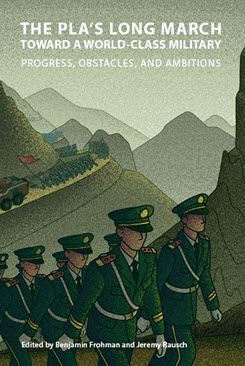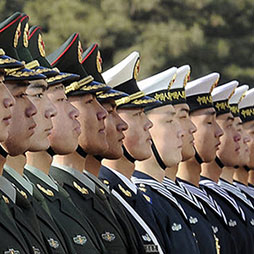Book from the People's Liberation Army Conference
AI and the PLA’s New Revolution in Military Affairs
Moving from Weapons Applications toward a Battle Brain
This chapter examines the role of artificial intelligence (AI) in the new revolution in military affairs by the PLA and the current and future applications of AI-enabled technologies.
Executive Summary
MAIN ARGUMENT
Owing to the wide variety of applications, the PLA has prioritized AI as part of the new revolution in military affairs. It is not possible to accurately quantify or qualify the level of integration of various AI applications through the military’s current forces due to the lack of systematic and reliable access to information. The PLA does benefit from a robust civilian AI industry. Beyond current observable applications of AI in areas such as unmanned systems, PLA researchers identify AI-enabled battlefield command and control (C2) as the next development on the (albeit distant) horizon, which will be of central importance for intelligentized warfighting. Further developing AI-enabled simulation technology will serve the dual purpose of training PLA forces that lack warfighting experience and adding to training data for an eventual “command brain.” However, political risk, bias, and reliability issues, in addition to a lack of trustworthy data sets and talent, are seen as significant obstacles to making progress in developing and integrating AI-enabled C2 applications.
POLICY IMPLICATIONS
- If the PLA continues to be plagued by corruption at its high rank, particularly in services of strategic importance to its key missions, then the PLA leadership could seek AI-enabled C2 as a means to overcome potential disloyalty.
- If researchers observe the successful development and integration of related civilian AI-enabled decision-making applications in China, then such technology could be used as a proxy measurement of the PLA’s likely progress toward a military application of AI-enabled C2.
- If the PLA does move toward AI-enabled C2, then the risk of escalation will likely increase owing to a lack of understanding in how decisions are formed within the PLA’s structures and on what data these automated decisions are based.
Meia Nouwens is a Senior Fellow for Chinese Security and Defence Policy at the International Institute for Strategic Studies.



 The PLA's Long March toward World-Class Status
The PLA's Long March toward World-Class Status
